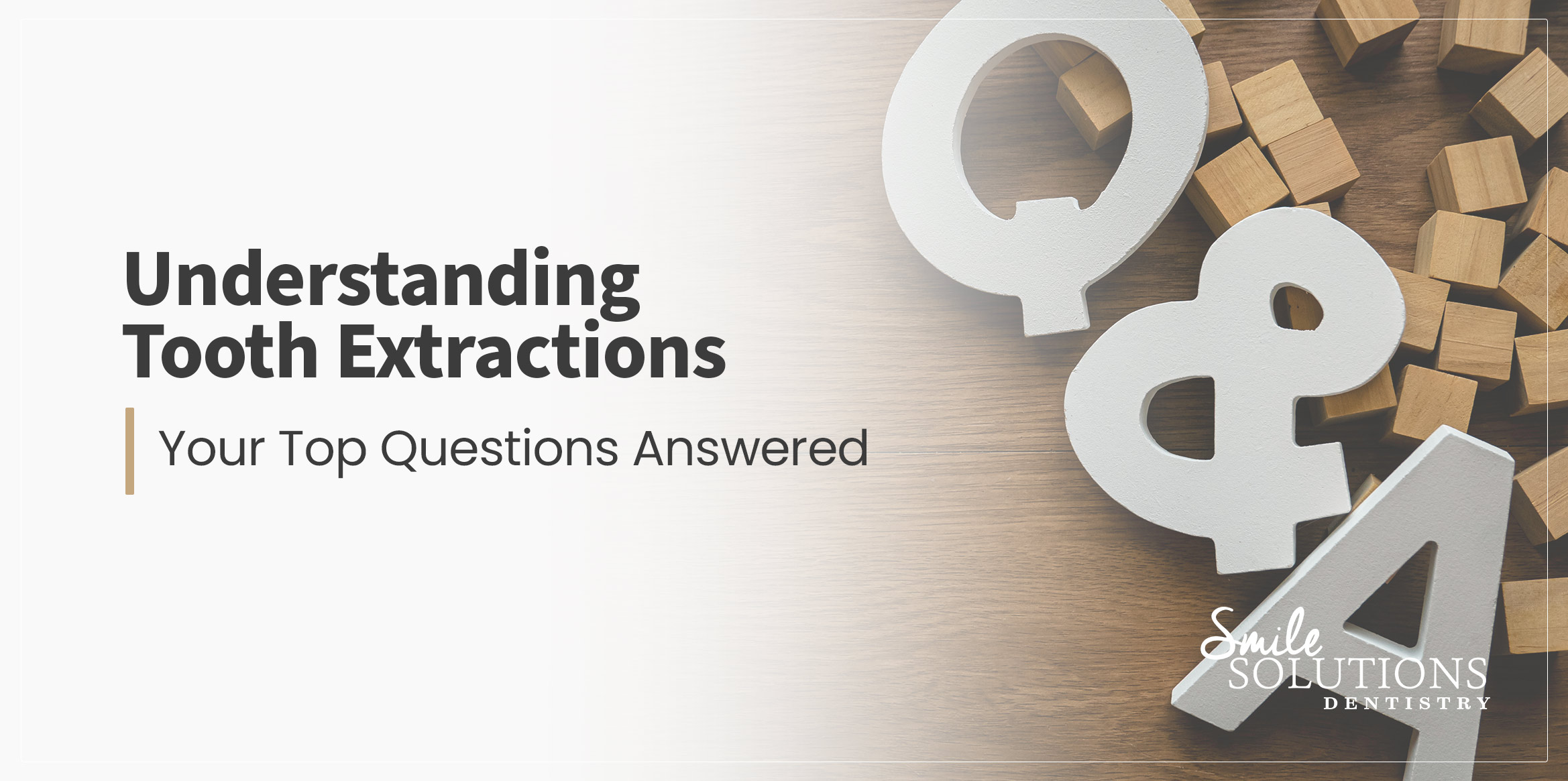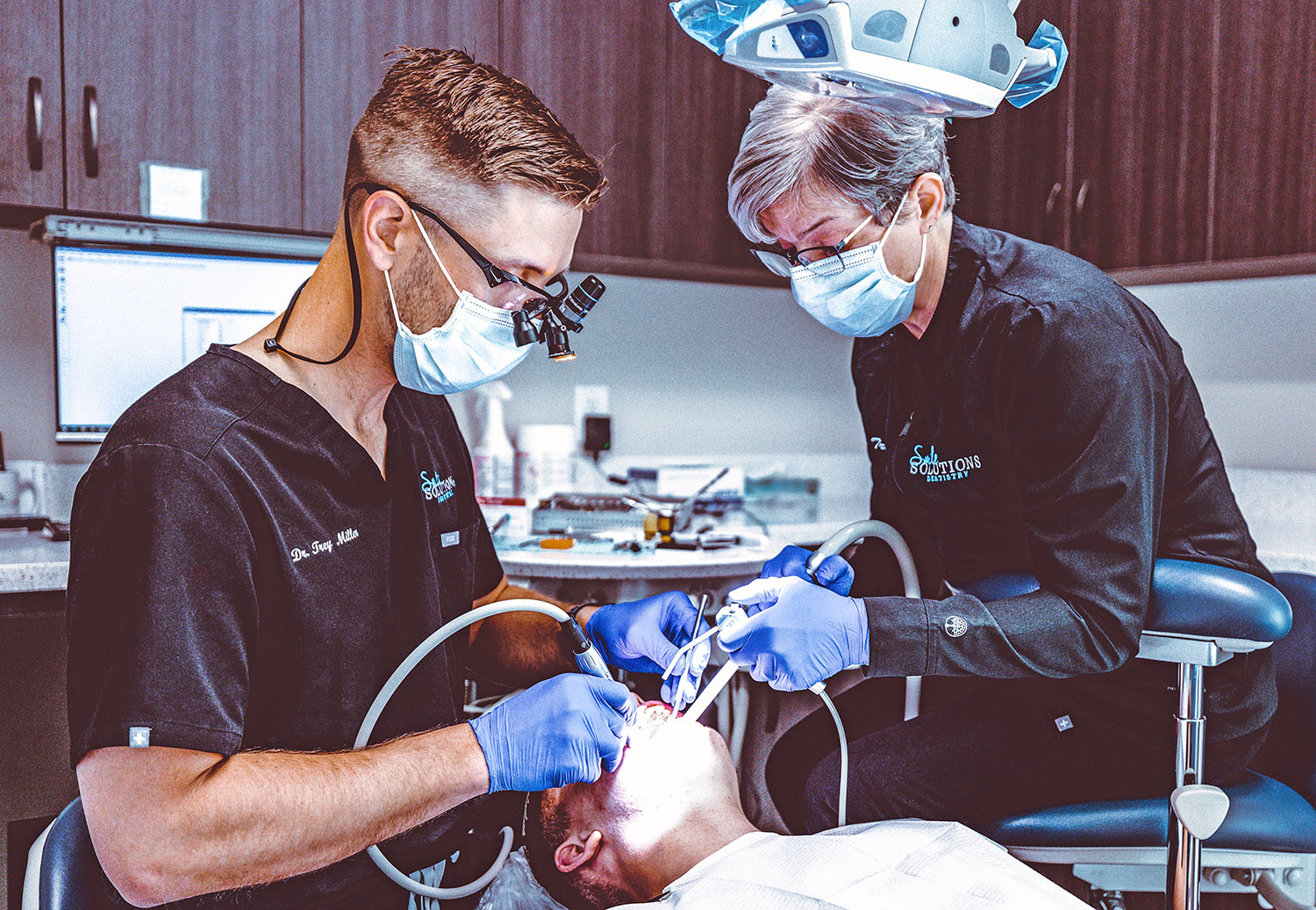Understanding Tooth Extractions: Your Top Questions Answered
Gaining a thorough understanding of tooth extractions is essential for making informed decisions about your dental health. This comprehensive guide addresses the key questions you might have, covering topics such as the reasons behind extractions, the potential discomfort, post-extraction care, potential complications, and various tooth replacement options. Whether you’re preparing for a routine extraction or facing the removal of wisdom teeth, this guide is designed to equip you with valuable knowledge, ensuring a more comfortable and informed dental experience.
Tooth extractions are typically not painful during the procedure itself.
Why Might I Need a Tooth Extraction?
There are several reasons why you might need a tooth extraction. One of the most common reasons is severe tooth decay or damage that cannot be effectively treated with restorative procedures like fillings or crowns. Additionally, advanced gum disease can lead to tooth mobility and the need for extraction. Wisdom teeth, often impacted or causing crowding, frequently require removal. Overcrowded teeth in the mouth might necessitate extractions to create space for orthodontic treatment. Finally, teeth that are broken or fractured beyond repair may also need extraction to prevent further complications and maintain overall oral health. Your dentist will evaluate your specific situation and recommend extraction when it’s the best course of action.
Are Tooth Extractions Painful?
Tooth extractions are typically not painful during the procedure itself. Dentists use local anesthesia to numb the area, ensuring that you won’t feel pain while the tooth is being removed. However, you may experience some pressure, tugging sensations, or discomfort. Any post-extraction pain is usually manageable with over-the-counter pain medications and should subside within a few days as the healing process progresses. The level of discomfort can vary depending on factors like the complexity of the extraction, your pain tolerance, and adherence to post-operative care instructions. Overall, while there may be some discomfort, modern dental techniques and pain management make tooth extractions generally tolerable and far less painful than the dental issues they aim to resolve.
How Long Is the Recovery Period for a Tooth Extraction?
The recovery period for a tooth extraction can vary depending on factors such as the complexity of the extraction, the patient’s overall health, and adherence to post-operative care. In general, you can expect initial recovery to last a few days to a couple of weeks. During this time, it’s common to experience some swelling, mild pain, and possibly bruising at the extraction site. You may need to eat soft foods and avoid certain activities to facilitate healing. Your dentist or oral surgeon will provide specific post-extraction care instructions, which should be followed diligently to ensure a smooth and speedy recovery. While most people can return to their regular activities relatively quickly, it’s essential to be patient and prioritize proper oral hygiene during the recovery period to minimize any potential complications.
What Do the Post-Extraction Care Instructions Look Like?
Post-care is crucial after a tooth extraction to promote proper healing and minimize the risk of complications. Following your dentist’s instructions for pain management, dietary restrictions, oral hygiene, and activity limitations is essential to ensure a comfortable and successful recovery while preventing infections and other issues.
Bite on Gauze:
Immediately after the procedure, gently bite on gauze to control bleeding. Change the gauze as needed.
Avoid Touching the Area:
Refrain from touching the extraction site with your fingers or tongue to prevent infection.
Consider Prescribed Medications:
Follow your dentist’s instructions regarding pain medications and antibiotics, if prescribed.
Apply Cold Packs:
Applying ice packs to the cheek near the extraction site can help reduce swelling and discomfort during the first 24 hours.
Eat Soft Foods:
Stick to a soft diet for a few days, including items like yogurt, mashed potatoes, and smoothies. Avoid hot, spicy, and hard foods.
Oral Hygiene:
Be gentle when brushing and flossing your teeth, avoiding the extraction site initially. Rinse your mouth with warm saltwater after 24 hours to aid healing.
Rest:
Avoid strenuous activities for a few days and get plenty of rest.
Avoid Smoking and Straws:
Refrain from smoking and drinking through straws, as these actions can disrupt the healing process.
Follow-up:
Attend any follow-up appointments as scheduled with your dentist to monitor your progress.
What Are the Potential Complications of a Tooth Extraction?
Tooth extractions are generally safe procedures, but potential complications can arise, including infection at the extraction site, which may manifest as pain, swelling, and discharge. Dry socket is another complication where the blood clot that forms in the extraction site either dissolves or becomes dislodged, causing severe pain and delaying healing. Less common complications may include injury to nearby nerves or blood vessels, excessive bleeding, or a fractured jaw, particularly in more complex extractions. Adherence to post-operative care instructions and prompt communication with your dentist if you experience unusual symptoms can help mitigate these risks.
Can I Drive After a Tooth Extraction?
After a tooth extraction, especially if you’ve received anesthesia, it’s generally recommended to have someone else drive you home from the dental appointment. The effects of anesthesia can impair your coordination, reflexes, and judgment, making it unsafe to operate a vehicle immediately after the procedure. It’s best to arrange for transportation in advance to ensure your safety and the safety of others on the road. Once you’ve fully recovered from the effects of anesthesia and feel comfortable, you can resume driving, but it’s a good idea to consult with your dentist for specific guidance based on your individual situation.
When Can I Resume Normal Activities After a Tooth Extraction?
The timing for resuming normal activities after a tooth extraction can vary depending on the complexity of the extraction, your overall health, and how well you follow post-operative care instructions. In general, you should plan to take it easy for at least the first 24 hours after the extraction, avoiding strenuous activities, heavy lifting, and exercise. After this initial period, you can gradually increase your activity level as you feel comfortable, but still, avoid vigorous activities for a few days to a week. Most people can return to work or school within a day or two, but it’s essential to prioritize rest, maintain good oral hygiene, and follow your dentist’s guidance to ensure a smooth and complication-free recovery. If you have specific concerns about resuming certain activities, it’s best to discuss them with your dentist for personalized advice.
What Are My Options for Replacing an Extracted Tooth?
You have several options for replacing an extracted tooth, depending on your specific needs and circumstances. Dental implants are a popular choice, as they provide a durable and natural-looking replacement that integrates with your jawbone. Bridges are another option, where a prosthetic tooth is anchored to adjacent healthy teeth. Dentures are removable and can replace multiple missing teeth. Your dentist will consider factors such as your oral health, budget, and preferences to help you choose the best option for tooth replacement.
Conclusion
In conclusion, tooth extractions are important dental procedures that matter because they can alleviate pain, prevent the spread of infection or disease, and contribute to overall oral health. Whether it’s removing a severely decayed tooth, addressing impacted wisdom teeth, or making space for orthodontic treatment, extractions play a crucial role in preserving your well-being and ensuring the longevity of your smile. Understanding the reasons for extractions, following post-operative care instructions diligently, and exploring tooth replacement options when necessary are all integral components of maintaining good oral health and a functional, confident smile.
If you’re interested in a consultation, you can schedule an appointment and Dr. Trey Miller or one of his colleagues will happily see you to determine whether or not you need a tooth extraction.




